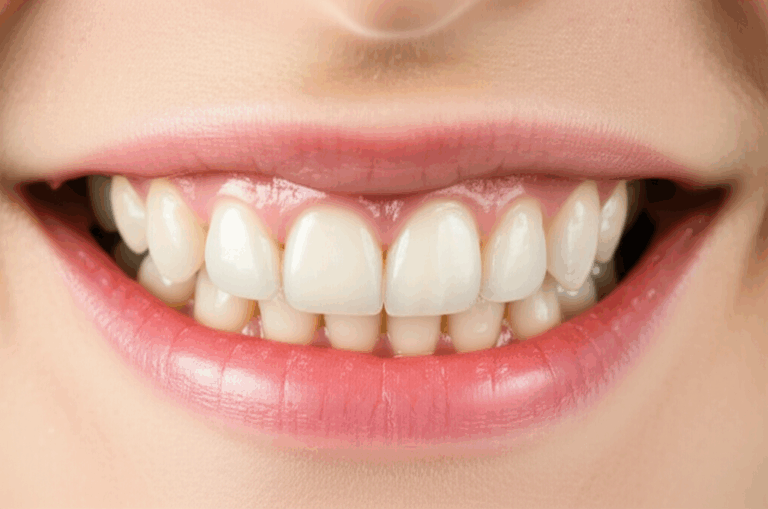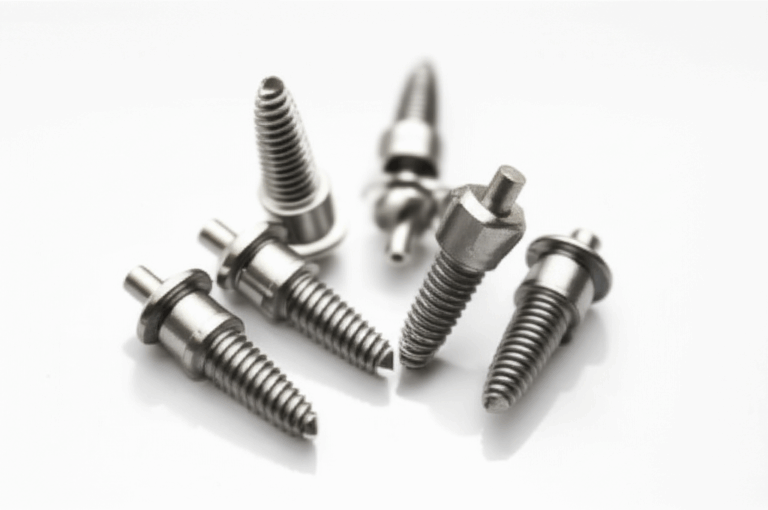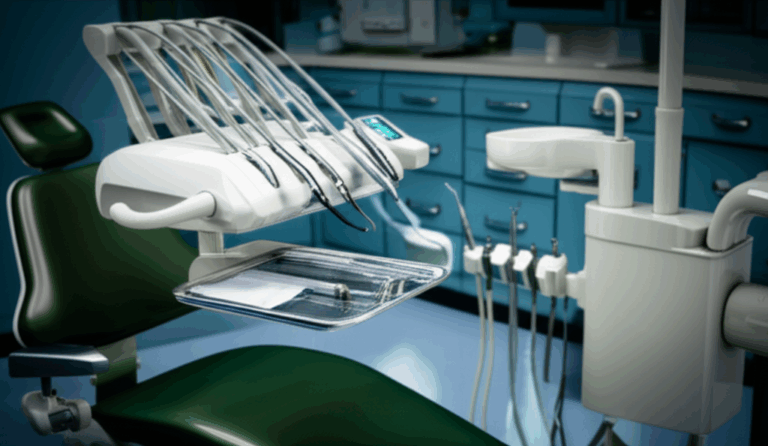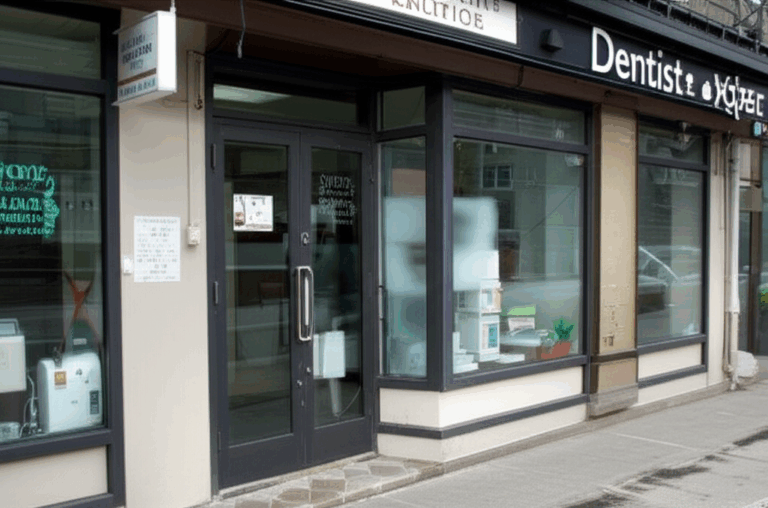
Are Dentists Allied Health Professionals? Understanding Their Unique Role in Healthcare
That question comes up a lot. You might see the words “allied health” next to a long list of jobs or see dentists, dental hygienists, and dental assistants working together. But where do dentists belong? Are they allied health professionals?
Short answer: No, dentists (DDS/DMD) are not usually seen as allied health professionals. They are primary care providers for oral health. But, many people on their team—like hygienists, assistants, and dental lab techs—are considered allied health workers.
Let’s break this down simply and clearly.
Table of Contents
What Does “Allied Health Professional” Mean?
Here’s a simple definition. “Allied health professional” refers to a big group of health workers who are not doctors or nurses. In most countries, it also leaves out dentists. Allied health covers lots of jobs that help prevent and treat illness, help people recover, and support clinics and hospitals.
Key things about allied health
- They go to college or special school after high school.
- They get a license or follow rules set by the government.
- They work as part of a bigger team.
- They help find and treat problems, and help people get better or stay healthy.
Some common examples: physical therapists, occupational therapists, speech-language pathologists, dietitians, x-ray techs, medical lab techs, and others. They work with doctors, nurses, dentists, and public health workers.
What big groups say about allied health
- United States: The Health Resources and Services Administration (HRSA) calls allied health a big group that isn’t medicine or nursing. They help prevent, find, and treat sickness, and help with recovery and health management.
- World Health Organization (WHO): WHO puts jobs into groups by skill and specialty. Dentists are in “Health Professionals,” not mixed with hygienists and assistants. WHO doesn’t use “Allied Health” as a worldwide label, but countries do.
- UK: The National Health Service (NHS) lists 14 Allied Health Professions (like physiotherapists, dietitians, paramedics). Dentists are not on that list and are regulated by the General Dental Council (GDC).
- Australia: Allied Health Professions Australia (AHPA) says allied health excludes doctors, nurses, and dentists. Dentists are managed by the Dental Board of Australia.
Bottom line definition
- Allied health includes workers who are not doctors, nurses, or dentists in many official lists.
- They use what they’ve learned to prevent sickness, find and treat problems, help people recover, and manage health services.
How Dentists Fit In: Primary Providers, Not Allied Health
Here’s where people get confused. Dentists work with allied health professionals every day. But they’re in their own group. Dentists are main care providers for everything to do with teeth, gums, jaws, and related areas.
What dentists do
Dentists find and treat mouth problems. They do surgery, pull teeth, fix issues, and give medicine for pain or infection. They handle harder problems (like gum disease, jaw issues, or sleep problems related to the mouth). They’re in charge of safety, cleaning, checking your health history, and making sure care is correct.
Dentists go to dental school for a doctorate (DDS or DMD). They learn mouth anatomy, mouth sickness, germs, x-rays, medicine, and how to treat patients. After dental school, many train more for special jobs. They have to keep learning every year and meet license rules.
Dentists vs. doctors
Dentists and regular doctors both have doctorate degrees. They both find out what’s wrong, give medicine, and do surgery (when needed). The difference is what they focus on—dentists handle the mouth area, doctors work on the whole body. Both have to do the best for their patients and follow science.
Why dentists aren’t called “allied health”
- Dentists work on their own. They don’t need a doctor’s okay to check and treat your mouth.
- They are the leaders of the dental office.
- Most official groups (US HRSA, Australia, UK) don’t count dentists as allied health.
Dentists with extra training
Sometimes your dentist might send you to a specialist—all of them are still dentists, not allied health:
- Orthodontists: Braces and teeth moving.
- Periodontists: For gums.
- Endodontists: For root canals.
- Oral Surgeons: For really hard tooth pulls and surgeries.
- Prosthodontists: For crowns, bridges, dentures, and implants.
- Pediatric dentists: For kids and teens.
- Oral pathologists: For checking mouth sickness in tissue.
- Oral medicine: For hard mouth problems that might link with other health issues.
- Oral radiology: For special mouth x-rays.
- Dental public health: For big-picture dentistry (public programs, teaching prevention).
The Dental Team: Allied Health Roles That Support Your Care
Good dental care works like a good team—dentists lead, and the whole team helps make your visit smooth and safe.
Common allied health roles in the dental office
- Dental hygienists: Prevention pros. They clean teeth (scaling), help stop gum disease, put on sealants, teach how to care for teeth, and can work on their own in some places. They fit the “allied health” label in lots of countries.
- Dental assistants: Help make things run. They get rooms ready, keep things clean, help during treatments, take x-rays, and help with paperwork. Many belong in the “healthcare support” category.
- Dental therapists / oral health therapists: In some places, they do basic cleaning, fillings, and work with kids or in areas with less dental care. They fit under “allied health.”
- Dental lab techs: Make crowns, bridges, dentures, veneers, and even clear aligners. Many work in labs using different materials and new digital tools like 3D printers. Their work supports the dentist and usually counts as allied health.
If you want to know how your crown or denture is made, specialized labs like a crown and bridge lab or a dental ceramics lab craft the parts your dentist puts in your mouth.
Working with other health pros
Dentists work with more allied health people outside their office, too:
- Physical therapists: Help with jaw joint problems.
- Speech-language pathologists: Help with speaking or mouth movement.
- Dietitians: Help choose foods for healthy teeth and body.
- Pharmacists: Help with medicine choices and safety.
- Doctors or eye doctors: If a mouth problem is linked to other sicknesses like diabetes.
- Public health workers: For programs that help whole communities.
New tech in dentistry
Now, dentists use more digital tools. Teeth can be scanned with a camera, crowns and bridges can be 3D printed, and video calls can help answer questions if you can’t go in person. These tools make care safer and can help people in far-away places.
Global Classifications and Why Definitions Vary
Rules and job lists change from country to country. Here’s what the main ones say:
United States
- HRSA: Dentists are main care providers. Allied health includes workers like hygienists, therapists, and assistants.
- BLS: Puts dentists in “Healthcare Practitioners and Technical Occupations.” Hygienists are here too. Dental assistants go in “Healthcare Support.” “Allied health” is not an official BLS label, but dentists are at the highest level.
World Health Organization (WHO)
- Puts jobs into groups by job tasks and education. Dentists are 2261, hygienists and therapists are 2262, assistants are 3251. WHO doesn’t use “allied health” as one group but sorts by skill.
United Kingdom
- GDC: Registers dentists and team, including hygienists, therapists, nurses, orthodontic therapists, and dental techs.
- NHS and HCPC: NHS lists 14 Allied Health Professions. Dentists are not on it—they’re managed by GDC.
Australia
- AHPRA: Regulates dentists and others under the Dental Board. AHPA says allied health does not include dentists, but lots of dental team members match the allied health jobs.
Canada
- The Canadian Dental Association says dentists are main oral health providers. Hygienists may have more rights to work on their own in certain provinces. Assistants and therapists help with care and often are called allied health. Dentists are not.
Why does this matter?
The rules change a little, but the main idea is the same: Dentists lead mouth health care. Allied health professionals help and add to your care. It works the same in all dental specialties—orthodontics, prosthodontics, endodontics, and more.
How This Affects Your Care, Coverage, and Career Planning
You probably don’t look at job lists for fun. Here’s why these labels actually matter in real life.
For patients
- You can go straight to a dentist—no need for a doctor’s okay. Dentists find and fix problems, do fillings, surgeries, crowns, gum care, and cancer checks.
- Hygienists help you prevent disease—by cleaning, checking gum health, and teaching what to do at home.
- Assistants help keep you safe with cleaning tools and making sure things go smoothly.
- Therapists and oral health therapists help kids and people in places without enough dentists. This can help cut down health differences among groups.
Insurance can be tricky. In the US, Medicare dental is still pretty limited. Medicaid dental depends on the state. Private dental insurance will often cover checkups and some treatments, but what’s covered changes a lot.
For people seeking jobs in dental care
- Dentists: Need a doctorate (DDS or DMD), tough science classes, hands-on learning, and board tests. They join groups like the American Dental Association (ADA).
- Allied dental jobs: Hygienists need a college degree and license. Assistants need special training. Therapists’ training depends on the country. Lab techs work with dental materials and digital tools.
- It’s always teamwork—people in dentistry work with doctors, nurses, pharmacists, therapists, dietitians, and more. Working well together helps patients.
For office leaders and health planners
- These job labels change how teams are set up, who gets paid what, and how schools train people.
- Public health now realizes mouth health is linked with sickness like heart disease, diabetes, pregnancy troubles, and more. Good rules help everyone get care and save money.
For everyone
- Good dental teams help people in towns and the countryside where care is harder to get. New tech and mobile clinics catch small problems before they get big. This is why public health dentistry matters.
Who Should You See for What? A Simple Care Pathway
Here’s a simple guide. Start with your dentist—if you need a specialist, they’ll point you in the right direction.
- Regular checkups: Dentist for an exam and cancer check. Hygienist for cleanings and prevention.
- Bleeding gums or bad breath: See your dentist or hygienist first. If it’s bad, maybe see a periodontist.
- Tooth pain: See your dentist. You may need a filling or root canal.
- Missing tooth or loose denture: Start with your dentist. They might suggest implants, bridges, or dentures. For special parts, your dentist might use a dental lab.
- Jaw pain or headaches: See your dentist for TMJ check. You may also see a physical therapist.
- Crooked teeth: Dentist can check and maybe send you to orthodontics for braces or clear aligners.
- Stains or chipped teeth: Dentist can help with whitening, bonding, or veneers. They work with a dental ceramics lab for veneers.
- Health problems or lots of medicines: Tell your dentist your history. They can check with other health workers if needed.
Frequently Asked Questions
Are dentists doctors?
Yes. They have a DDS or DMD degree. They check, treat, do small surgeries, and give medicine for the mouth.
Are dentists allied health professionals?
No. Dentists are main oral health providers, not allied health. Most official groups say so.
Are dental hygienists allied health professionals?
Yes, in many countries. Hygienists are trained, licensed, and work with the dental team on prevention.
Where do dental assistants fit?
Usually in the “healthcare support” group. They are key for safety and care.
What about dental therapists or oral health therapists?
They give cleanings and fillings, mostly for kids or in some places. They are allied health.
Are orthodontists, periodontists, endodontists, and oral surgeons allied health?
No. These are dental specialists. They are dentists with extra training.
Who regulates dental workers?
- US: State dental boards. ADA supports standards.
- UK: GDC for dentists and team. Allied health workers have other boards.
- Australia: AHPRA through the Dental Board. AHPA says who’s in allied health.
- Canada: Each province has rules. CDA is nationwide.
How do BLS and WHO group dental jobs?
- BLS: Dentists and hygienists are in “practitioners;” assistants are “support.”
- WHO: Dentists 2261, hygienists/therapists 2262, assistants 3251.
Are PAs, NPs, pharmacists, optometrists, podiatrists, or chiropractors allied health?
It depends on the country. Physical therapists, occupational therapists, speech pathologists, dietitians, and techs are often allied health, but the others are usually in their own group.
Is dentistry part of primary care?
Yes, for the mouth. Dentists are the main care givers for teeth, gums, and jaw.
What is the mouth health and whole-body health connection?
Mouth troubles can make diabetes, heart disease, pregnancy, and breathing problems worse. Public health dentistry tries to prevent these and make care fair for everyone.
Your Healthy Takeaway and Next Steps
Let’s wrap up what matters:
The big picture
- Dentists are not usually classified as allied health. They are main providers for mouth health and have doctoral training.
- Many on the dental team are allied health: hygienists, assistants, therapists, and lab techs help deliver and support care.
- Around the world, ideas about these jobs are similar even if the names change. Dentists lead, and allied health staff help. Working together helps everyone.
What you can do now
- Find your dentist: Get a checkup every six months, or as often as the dentist says.
- Meet your team: Ask who’s cleaning your teeth, who helps the dentist, and where your crown or denture is made.
- Share your medical details: Let your dentist know about your medicines and any health problems.
- At home: Brush twice a day with fluoride toothpaste. Clean between your teeth daily. Try a fluoride rinse if you get a lot of cavities.
- Don’t wait with mouth pain: Bleeding gums or a cracked tooth won’t fix themselves. Get help early—it saves trouble later.
- Ask about digital care: Teledentistry might help if you can’t go in or need easy follow-ups.
For students or job changers
- Interested in leading care? Consider dental school for a DDS or DMD.
- Love cleanings, prevention, and education? Dental hygiene may be great for you.
- Like designing and building things? Dental lab work can give you a hands-on job making crowns, veneers, and more with digital tools. Labs like a crown and bridge lab, dental ceramics lab, and even 3D labs all play a part.
Final word
A healthy smile takes a team. The dentist makes the plan, the dental team makes it happen. Together, you get better care for your mouth and whole body.
Sources & more info:
- American Dental Association (ADA)
- Health Resources and Services Administration (HRSA)
- Bureau of Labor Statistics (BLS)
- World Health Organization (WHO) ISCO-08
- General Dental Council (GDC), UK
- Australian Health Practitioner Regulation Agency (AHPRA) and Allied Health Professions Australia (AHPA)
- Canadian Dental Association (CDA)
Quick Definitions:
- Allied health workers: Non-doctors, non-nurses who help prevent, find, treat, or help people recover.
- Dentist (DDS/DMD): Main oral health provider—finds, treats, does surgery, and prescribes medicines.
- Dental hygienist: Focuses on cleaning, checking gums, and prevention.
- Dental assistant: Helps with cleaning tools and making visits smooth and safe.
- Dental lab tech: Makes crowns, bridges, dentures, and more in a lab.
- Dental specialties: Like orthodontics (braces), periodontics (gums), and others.
What we covered:
- What is allied health, and who is included
- Why dentists are not allied health professionals
- The dental team and where allied health fits in
- How these jobs are grouped in the US, UK, Australia, and Canada
- How this affects appointments, insurance, and job choices
- Why mouth health matters for the whole body
- New ideas: digital dentistry, teledentistry, and access to care
Your next step: Book your checkup, meet your dental team, and start a plan for a healthy mouth and smile!








